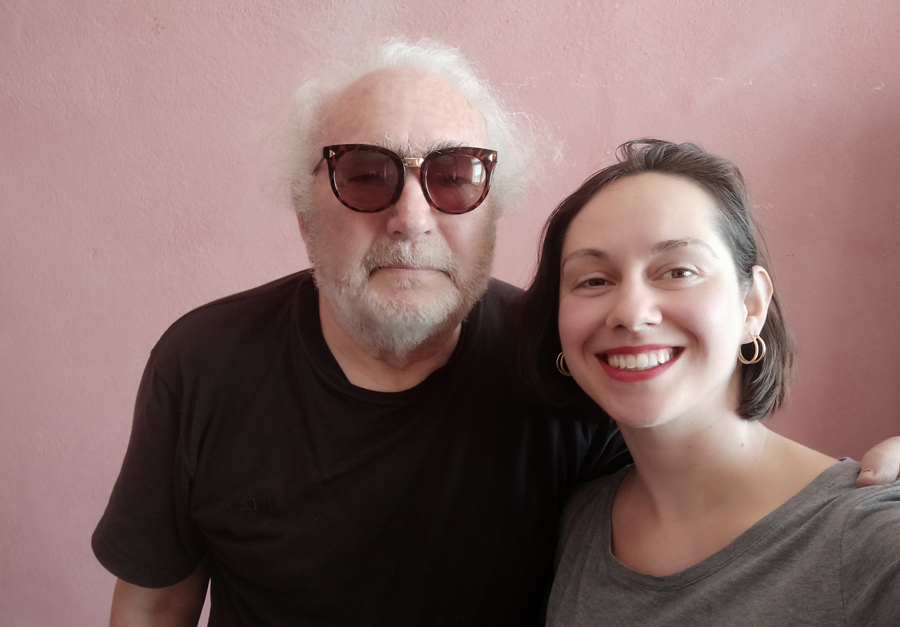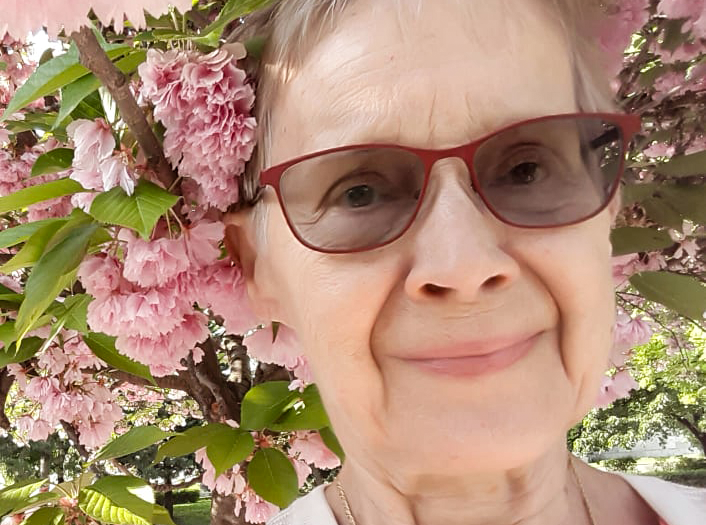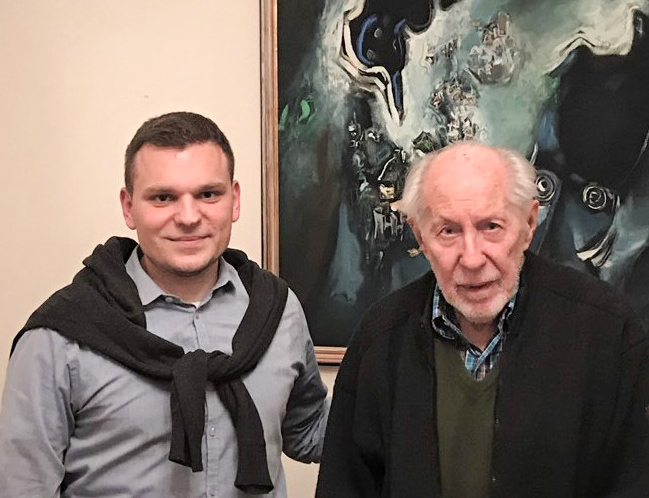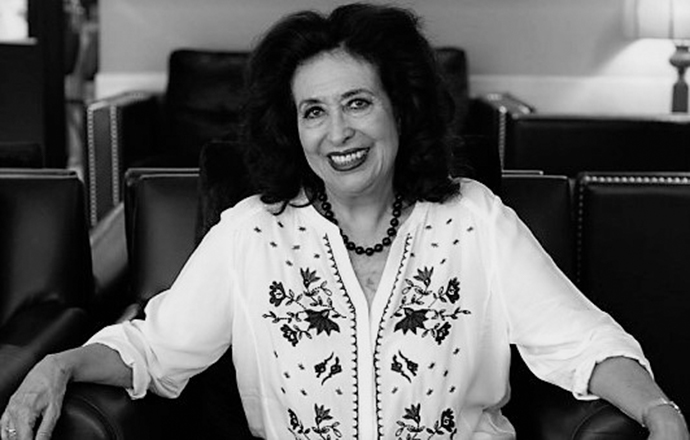Maks Velo was an Albanian architect, artist and writer. Born in Paris, he soon moved to Albania with his parents, where he grew up in the city of Korça. He began to express himself artistically at an early age, painting and playing the piano. From the 1950s onwards, Velo lived in the capital Tirana and studied civil engineering. Upon graduation in 1957, Velo not only created numerous buildings in Tirana as an architect but was also active as a visual artist. From 1973 onwards, public criticism of his work by the communist government became increasingly strong, culminating in an arrest in 1978 accusing Velo’s art of influences of European modernism. Velo spent eight years in the notorious labour camp Spaç. During his imprisonment 246 of his works were burned. After his release, he processed his trauma in ten books, and in 1991 was retrospectively granted the status of a political prisoner. Since then he has been a committed champion for human rights. Velo died on 7 May 2020 in Tirana at the age of 84.
In his conversation with Mariana Kostandini in August 2019 Velo talks about his fascination for Byzantine art, how he managed to plan and build two buildings during his time in prison and why he thinks it is essential for Albania to become an EU member state.
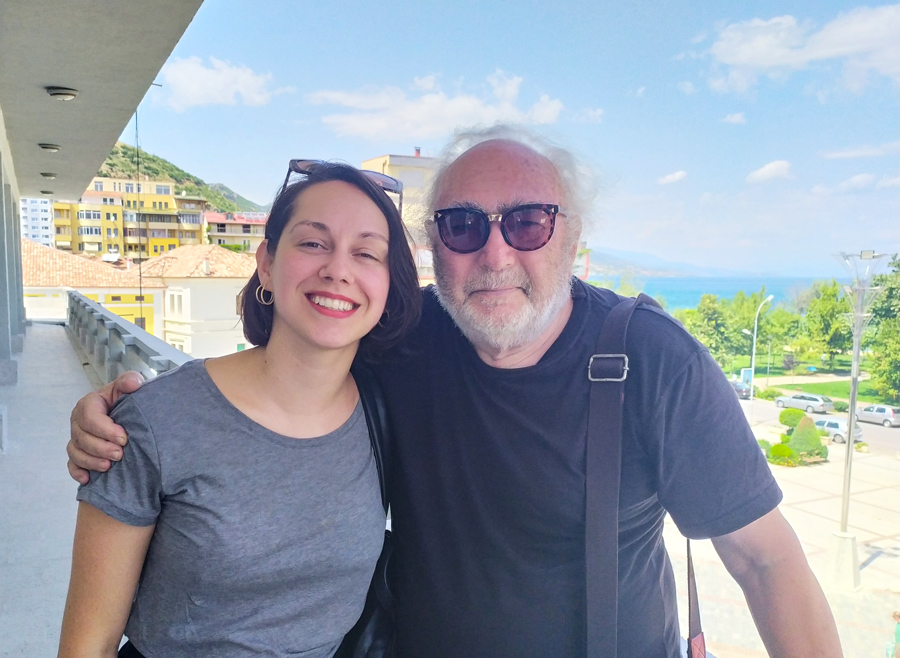
Maks Velo was interviewed by Mariana Kostandini, who graduated in Musicology and Art History in Paris, where she lives and works as Production Manager in the lyrical department at the Opéra.
Interview Highlights
On childhood
Well, some time ago, a couple of months ago, I had a meeting with some students and they asked me, one of those students asked me “Professor Maks, how could you handle all that stuff in prison?”. I said „I coped with all that stuff, because I had a happy childhood.“ It seemed like an endless reserve. I think childhood is very important, the creation of human dignity happens in childhood! I spent a part of my childhood in Paris. I have an unexplainable impression that all this modernity I brought to Albania comes from there. I do not know how to explain it, because I could not have initiated all those works I produced without a base, without an initiation.
On war
Yes, the war for me at the same time was like a movie, it was a giant theatre [laughs]. I remember when Italians came, then when Germans came. No, the Italians, then the Greeks came; warehouses were full, then the Greeks left, the Korçars were evacuated, the warehouses were emptied, looted. Then Germans came, then the partisans in Dardhë. I mean I have experienced all this. It was like one big [film]. Maybe a child has a different perception of all this.
On work
Curiosity comes first. Knowledge! The desire to understand stands before the desire to do. I mean, the desire to be acquainted with things has been that great and I’ve tried with all my strength as much as I could to be in contact with everything at the time. So, I got into architecture and this was so interlinked to painting and I could not consider them separate. Graphics, paintings stand together! Architecture and sculpture are the same thing! They are shapes that one gives to the world, they might be small or big shapes.
The only things out of this realm [of painting and architecture] what I hadn’t planned to do, was writing books, literature. This was as a result of the difficult time in prison. Being a witness to all that, an extraordinary experience of characters, unimaginably shocking events, I tell you something now, these events cannot be forgotten, and I wanted to convey this to people!
At the time of the arrest, 246 artworks were taken from me, besides the copper relief at Vollga [modern residential complex in Tirana conceived and built by Max Velo], 246… and all those were burnt, but thankfully, some of the works had been photographed before they were burned. They were put into my file as criminal evidence and I have managed to take those photographs in an attempt to reproduce them. I am trying to reproduce some of them. […]
Yes, the damage is irreparable for an artist who has a deep connection to his artwork, it’s just like giving up a piece of human life, a piece of life but the problem is that the people are not rehabilitating that quickly.
On Europe
Certainly, the three of them together. As a cultural, political, and economic union and all this makes it more beautiful as a union of diversity that has a priority and a much greater value now because they have managed to eradicate conflicts. Even when they have conflicts, such as the case with England, they resolve them peacefully! It has also made it a huge territory with many values, free movement, exchanging values, which are so tangible. The progress is very obvious with youngsters, students, and this is your case. All these values affect one another and the integration of these values to one another becomes much easier. Europe has reached its maximum and now I hope it resolves those few conflicts that are inevitable since there is still much diversity, but they have the organs to solve the conflicts!
